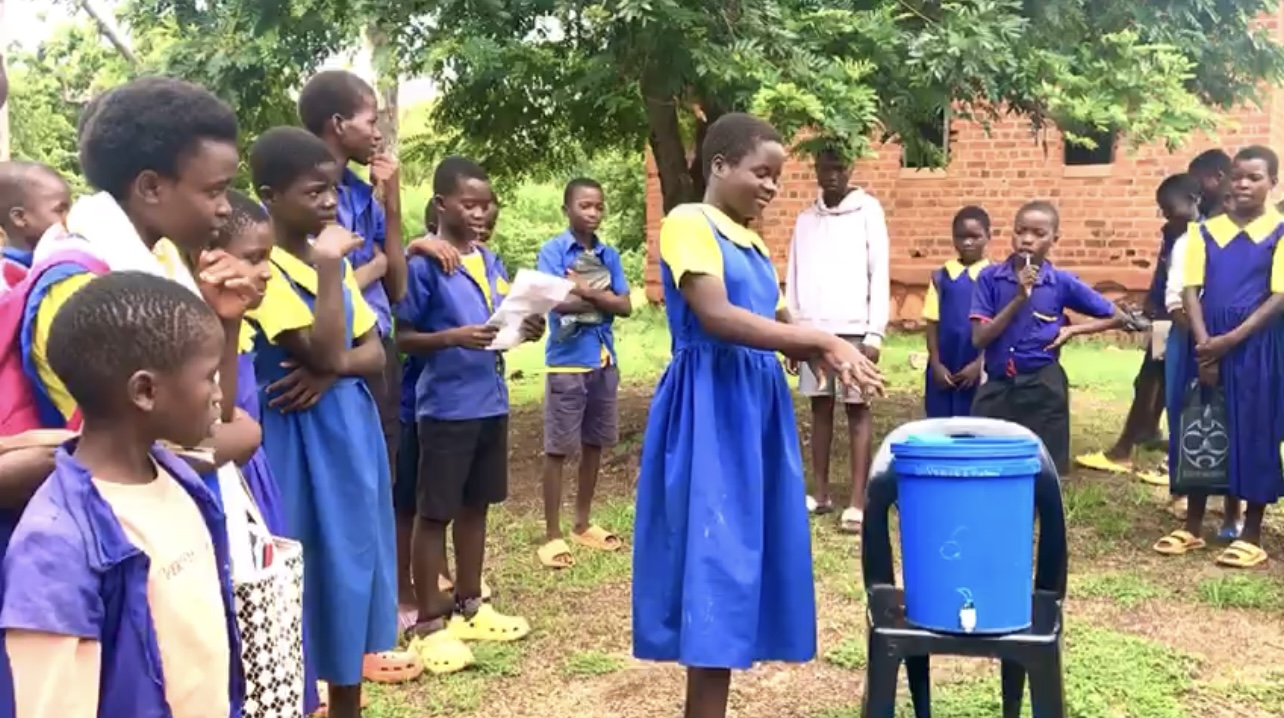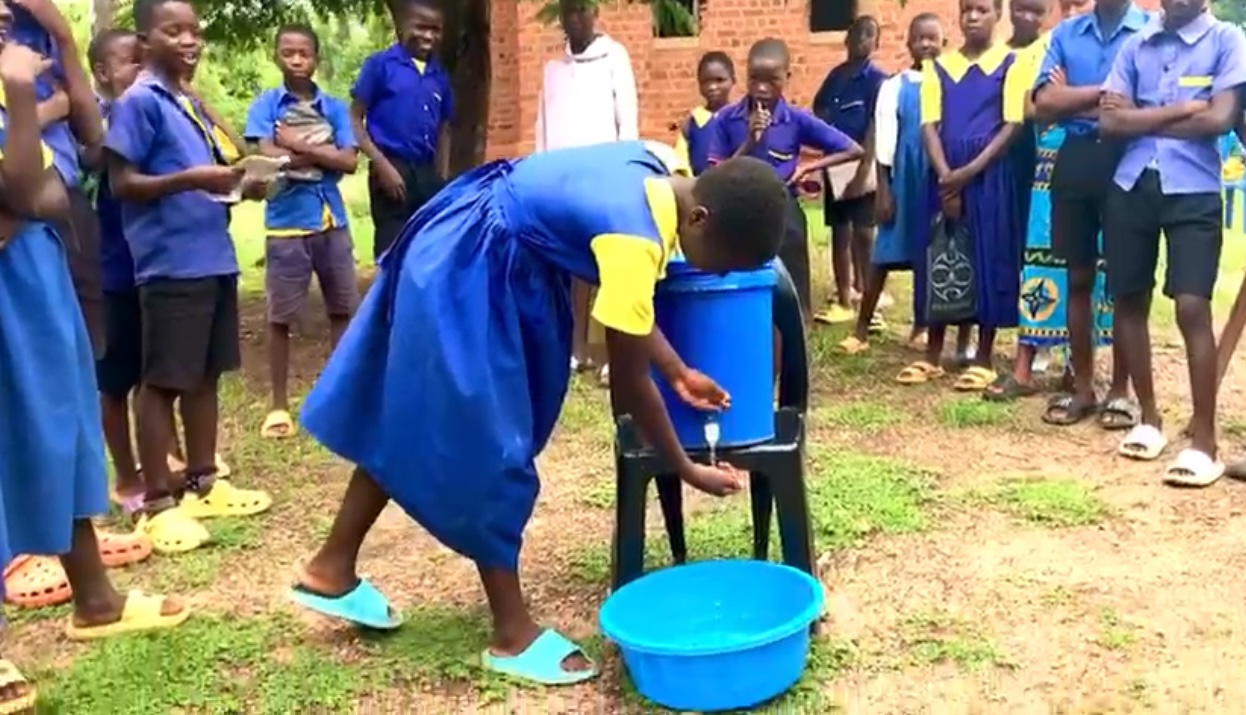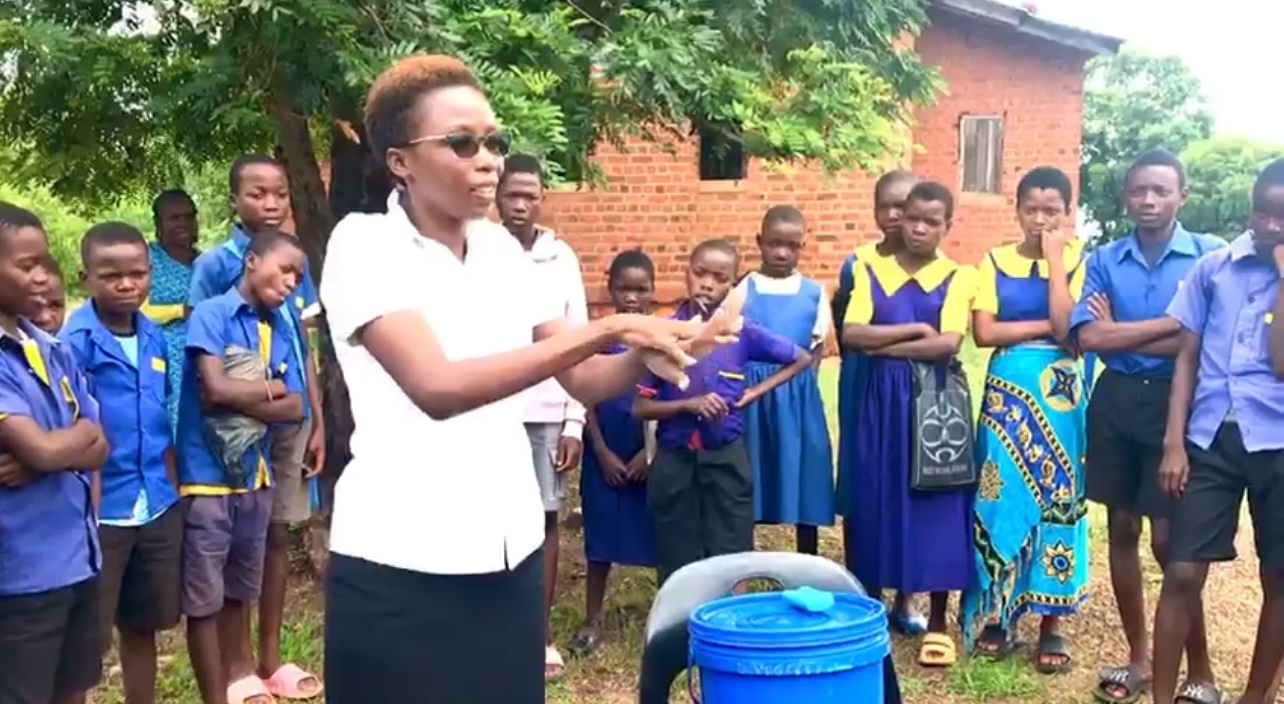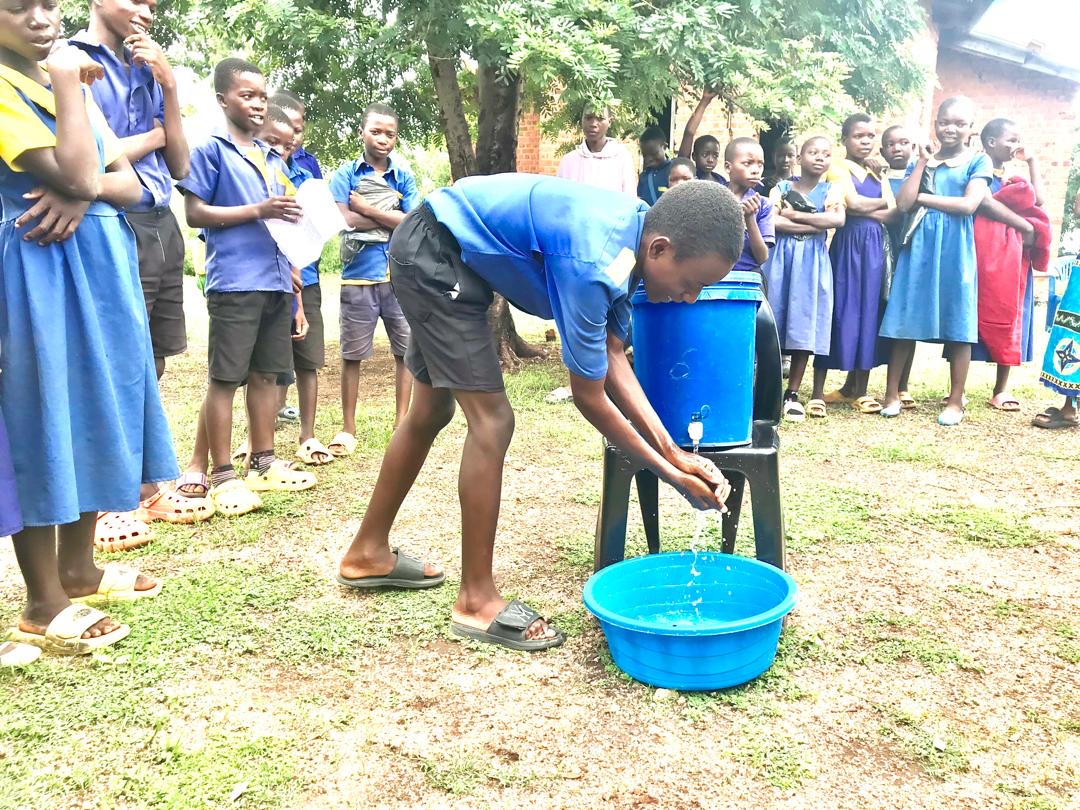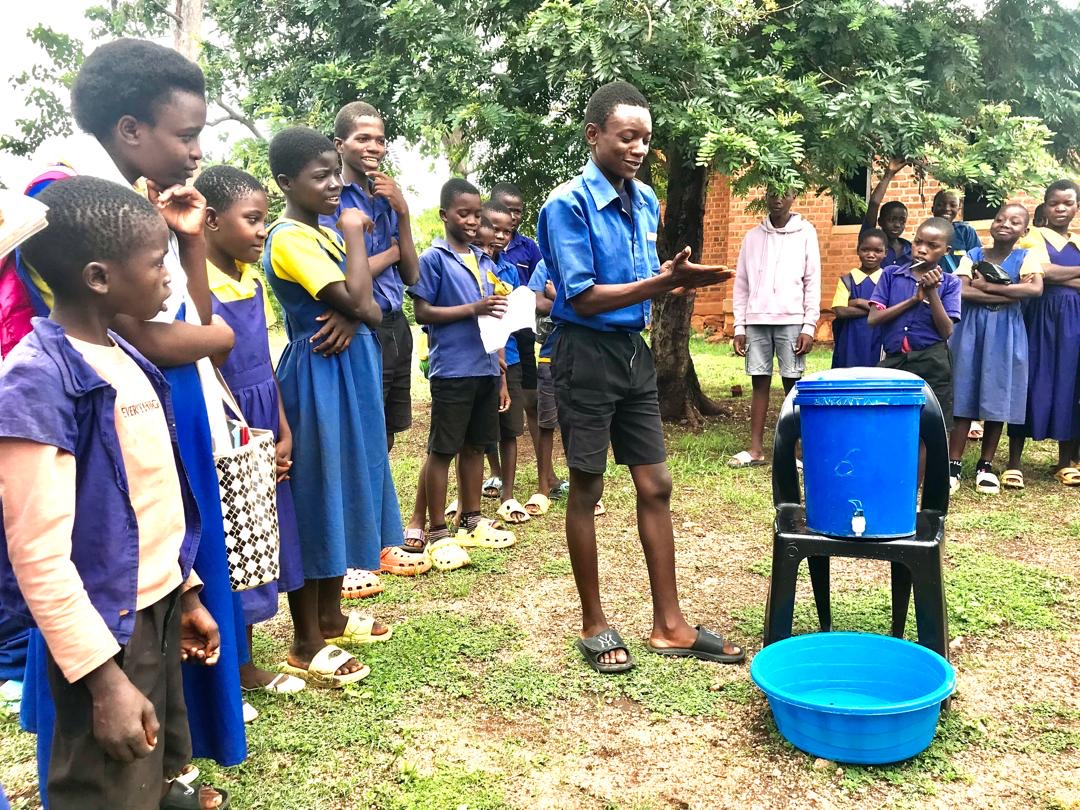EVENT: Hygiene Education- Hand Washing Orientation
Date: 25 January, 2025
Location: Sakata Primary School, Zomba, Malawi
On January 24, 2025, under the Environmental Conservation and Natural Resources Management Project, nearly 40 learners at Sakata Primary School and members of Environmental, Health, and Sanitation Club took part in an interactive handwashing orientation organized by United Voices for Global Impact (UVGI). The session aimed to instill consistent personal hygiene practices to reduce infections and prevent the spread of antimicrobial-resistant germs. This initiative aligns with several Sustainable Development Goals (SDGs), particularly SDG 3 (Good Health and Well-being), SDG 4 (Quality Education), and SDG 6 (Clean Water and Sanitation).
The session was designed to be both engaging and educational, beginning with singing and dancing to create an interactive learning atmosphere. This was followed by an educational session on the importance of proper handwashing, emphasizing its role in disease prevention. Learners eagerly practiced the five-step handwashing technique, -wetting hands, applying soap, scrubbing thoroughly, rinsing, and drying—a crucial routine for reducing the transmission of infections, including those caused by drug-resistant bacteria. The enthusiastic participation of students demonstrated a strong willingness to adopt healthy hygiene behaviors.
Beyond the immediate health benefits, this exercise fostered a sense of responsibility among learners, many of whom expressed interest in joining the school’s Environmental, Health, and Sanitation Club. The enthusiasm displayed by the students underscored the effectiveness of interactive learning methods in promoting behavioral change. Additionally, the success of the initiative has drawn interest from surrounding schools, which are eager to implement similar programs. However, resource limitations, such as access to clean water, soap, and hygiene materials, pose significant challenges.
This session highlights the vital connection between hygiene education and sustainable development, particularly in advancing global health, quality education, and sanitation.
- SDG 3: Good Health and Well-being
The handwashing orientation directly supports Target 3.3, which seeks to end epidemics of communicable diseases, and Target 3.9, which aims to reduce illnesses from hazardous chemicals and pollution, including waterborne diseases. By teaching young learners proper hygiene practices, UVGI is contributing to the reduction of preventable infections, ultimately improving overall community health
- SDG 4: Quality Education
Hygiene education is an essential aspect of a comprehensive learning experience. Through this initiative, learners gained critical knowledge on self-care, disease prevention, and responsible sanitation, aligning with Target 4.7, which emphasizes education for sustainable development and global citizenship. Additionally, the interactive approach ensured that knowledge was retained effectively, fostering lifelong healthy habits.
- SDG 6: Clean Water and Sanitation
Proper hygiene is intrinsically linked to access to clean water and sanitation. This initiative highlighted the importance of Target 6.2, which aims to provide access to adequate and equitable sanitation and hygiene for all. The challenges faced by schools in implementing similar programs due to resource limitations further emphasize the urgent need for increased investment in clean water infrastructure, particularly in educational institutions. https://sdgs.un.org/goal
The success of this event underscores the critical role of hygiene education in promoting health and sustainability. By embedding proper handwashing practices into daily routines, UVGI continues to empower young learners with essential life skills that contribute to the well-being of their communities.
Moving Forward: Sustainability and Expansion
To ensure the sustainability of this program, continued reinforcement and community involvement are crucial. UVGI and educators at Sakata Primary School are committed to promoting hygiene education, ensuring that proper handwashing becomes a habitual practice. Expanding this initiative to surrounding schools will require collaboration with stakeholders to secure essential resources such as soap, clean water, and educational materials.
Promoting hygiene education is not just a health intervention but a fundamental component of sustainable development. Ensuring that children adopt these essential habits will contribute to healthier communities, reduced disease burden, and improved educational outcomes, paving the way for a more sustainable and equitable future.

